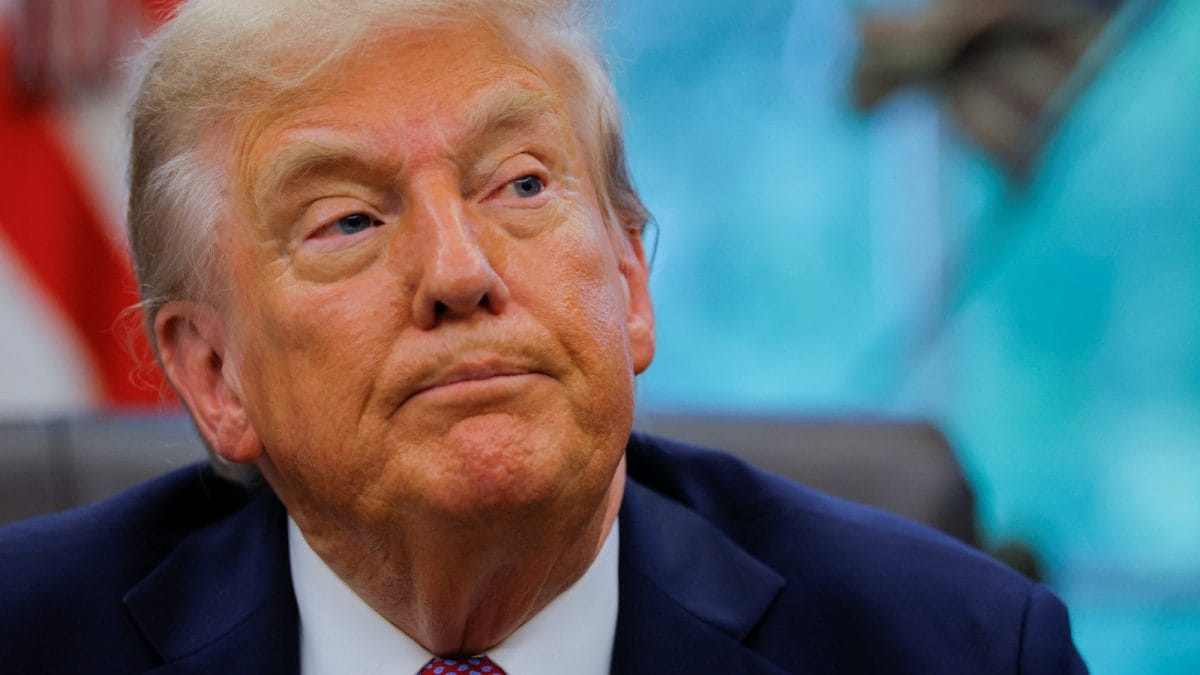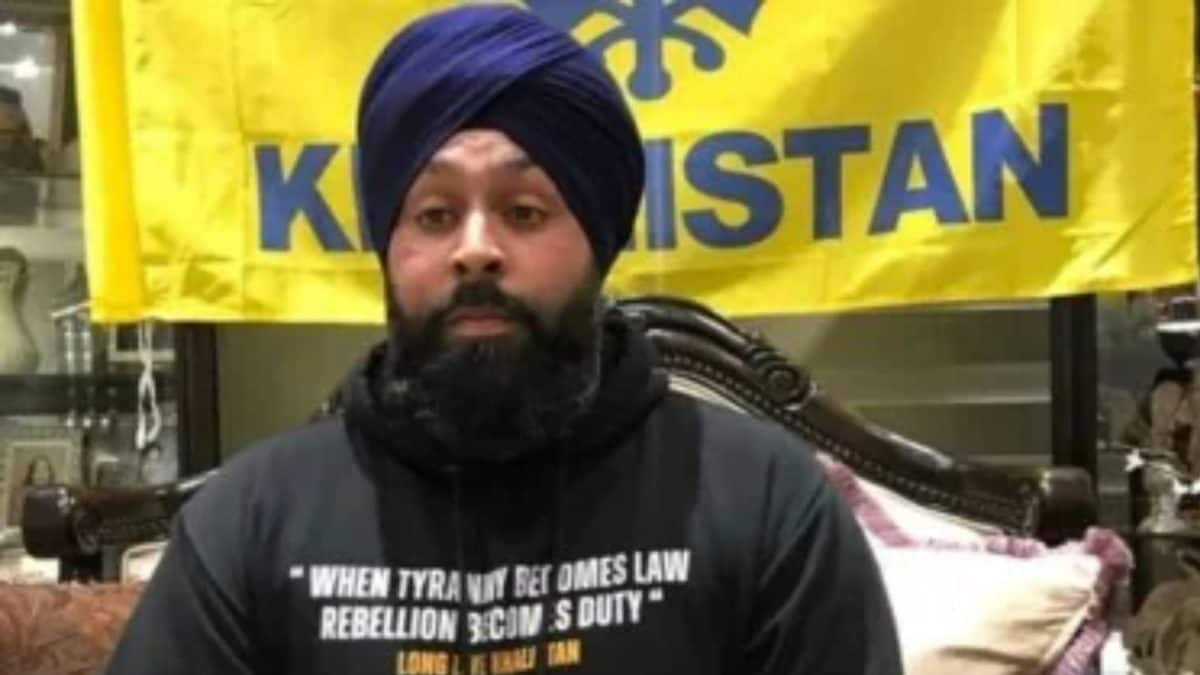Last Updated:
The US president insists ‘everyone’ thinks he deserves the Nobel. But the odds are stacked against him

US President Donald Trump has long coveted the Nobel Peace Prize, turning it into a recurring theme in his speeches and posts.
US President Donald Trump has long coveted the Nobel Peace Prize, turning it into a recurring theme in his speeches and posts. At the United Nations General Assembly this week, he again declared that “everyone” thinks he deserves it, crediting himself with ending “seven unendable wars”. Yet as the October 10 announcement approaches, the gap between Trump’s claims and how he is viewed by Nobel historians, the prize committee, and the American public has rarely looked wider.
The award is decided by a five-member Norwegian Nobel Committee, appointed by Norway’s parliament, and the signals from Oslo are not in Trump’s favour.
Recommended Stories
Why Is Trump Campaigning So Hard?
For Trump, the Nobel has become both a political trophy and a symbol of international legitimacy. He has invoked it repeatedly, from a June announcement on an African peace deal, when he mentioned the prize half a dozen times, to Truth Social posts where he insisted that former US President Barack Obama was awarded in “10 seconds” simply because of his name. His fixation has roots in Obama’s 2009 prize, which many considered premature, and which Trump has long suggested was undeserved.
At the UNGA this week, he tied his pursuit of the Nobel to his foreign policy agenda, presenting himself as the one leader capable of bringing peace to Ukraine and Gaza.
But while Trump has made the Nobel part of his political brand, the approach itself runs against the grain of how the Norwegian Nobel Committee operates. Reuters notes that the body has traditionally bristled at lobbying. Deputy leader Asle Toje explained that campaigns to influence the five members often backfire, since the committee prides itself on independence and resists attempts to influence its deliberations.
Historians And Researchers Say His Record Rules Him Out
Beyond the lobbying, Nobel historians argue that Trump’s actions in office contradict the principles Alfred Nobel set out in his will, which called for advancing “fellowship among nations”.
Asle Sveen, a historian of the award, told Reuters that Trump’s strong backing of Israel in the Gaza war and his attempts at rapprochement with Russian President Vladimir Putin mean “he has no chance to get the Peace Prize at all”.
Nina Graeger, director of the Peace Research Institute Oslo, added that the US withdrawal from the World Health Organisation, the exit from the Paris climate accord, and a trade war with close allies were hardly the hallmarks of a peacemaker. These moves, she argued, weakened international cooperation at a time when Nobel’s vision stressed building it.
The contrast with past controversial laureates is instructive. Henry Kissinger, who shared the 1973 award with North Vietnam’s Le Duc Tho, was criticised for his role in escalating the Vietnam War. F.W. de Klerk, South Africa’s last apartheid-era president, received the prize alongside Nelson Mandela in 1993 only after he began dismantling apartheid laws and negotiating a democratic transition.
As former Nobel Committee member Henrik Syse explained to Reuters, these leaders were honoured not because of their past records but because they acknowledged past wrongs and took visible steps to reverse them. By contrast, Trump has shown no comparable shift.
What Does Public Opinion Say?
Trump’s campaign for recognition is also weakened by scepticism at home. A Washington Post–Ipsos poll of more than 2,500 adults, conducted in mid-September, shows that 76 per cent of Americans believe he does not deserve the prize, while just 22 per cent say he does.
The breakdown illustrates the divide. In the US, Republicans are Trump’s own party, Democrats are the main opposition, and independents are voters without party affiliation. Even among Republicans, fewer than half believe he should receive the Nobel. Among independents, only 14 per cent agree, and among Democrats the figure is just 3 per cent.
The same poll also measured views of his handling of current conflicts. Six in ten Americans disapprove of his management of the Russia–Ukraine war, and nearly the same share disapprove of his response to Israel’s war in Gaza. These results suggest that his effort to project himself as a global peacemaker is undermined by his standing in the very crises most visible to the public.
Who Is Being Talked About Instead?
With Trump facing long odds, attention has shifted to other likely candidates. Reuters reports that the Nobel Committee may choose to recognise humanitarian organisations whose work has become more difficult in today’s geopolitical climate, a climate shaped in part by US aid cuts under Trump.
UN agencies such as UNHCR or UNICEF, international NGOs like the Red Cross or Doctors Without Borders, and grassroots networks such as Sudan’s Emergency Response Rooms are all seen as credible contenders.
The committee could also choose to honour journalism, after a year in which more media workers were killed worldwide than ever before, many of them in Gaza. Groups such as Reporters Without Borders or the Committee to Protect Journalists are under consideration.
With the UN marking its 80th anniversary, institutions like the International Court of Justice, or even the organisation as a whole, could also be in focus.
Could Trump Still Change The Picture?
Some leaders have suggested that the Nobel is not entirely out of reach. French President Emmanuel Macron argued this week that if Trump were to secure an end to the Gaza war, he would immediately become a contender. That view is echoed by Nina Graeger, who noted that if he managed to press Vladimir Putin into ending the war in Ukraine, the calculus could shift.
Such scenarios, however, remain hypothetical. For now, the signals are clear. The Nobel Committee is unmoved by lobbying, historians dismiss his record as incompatible with peace, and American public show little faith in his claims.
Trump may continue to present himself as the only leader capable of ending wars, but the Nobel Peace Prize in 2025 is likely to go in a very different direction.
About the Author

Karishma Jain, Chief Sub Editor at News18.com, writes and edits opinion pieces on a variety of subjects, including Indian politics and policy, culture and the arts, technology and social change. Follow her @kar…Read More
Karishma Jain, Chief Sub Editor at News18.com, writes and edits opinion pieces on a variety of subjects, including Indian politics and policy, culture and the arts, technology and social change. Follow her @kar… Read More
September 26, 2025, 10:57 IST
Loading comments…
Read More



